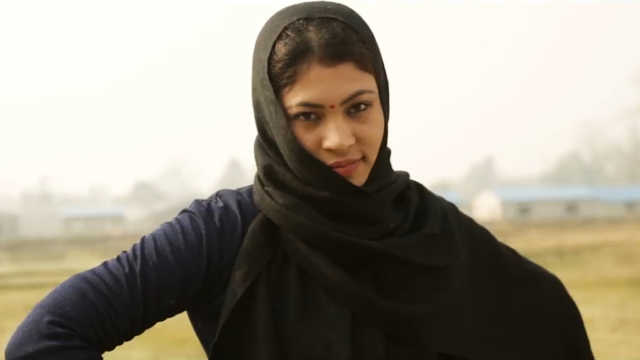
Roushni Sarkar
Kolkata, 20 Jan 2021 21:13 IST
Though the content itself may not make a strong impact, the pace of the film and the gradual involvement with the characters’ journey is soothing.

Mohan Rai’s feature film Mahanagar aka One Night In Kathmandu blends its theme into cinematic composition effortlessly. Though the content itself may not make a strong impact, the pace of the film and the gradual involvement with the characters’ journey is soothing. Even if the outcome is not outstanding, the effort that beautifully synchronizes all the thematic aspects of the film is commendable.
As the title suggests, the story unfolds over one night and explores the Kathmandu cityscape as the narrative of each character within the plot is established. The film has two clear physical and conceptual segments. While action dominates in the first half and a rapid turn of events creates intensity; the seond half is heavy with conversations and the exchanges gradually reveal the characters and shape the storyline.
The film introduces its protagonists with an engaging start. Two strangers (Karma Shakya and Menuka Pradhan) take a third who has met with an accident on the road to hospital and ensure he receives proper treatment. Both are kind souls and so stand by the patient through the night until his relatives can be informed.
Neither of the protagonists, however, feels an obligation to help the stranger in need. While the man claims he has nothing else to do and so can afford to spend the night at the hospital, the woman, silent and reclusive, seems to have found an escape from her troubled life in helping a stranger. This unusual yet comfortable situation for both characters creates the perfect context to get into the layers behind their appearances.

The contrasting traits of the characters are also evident from the beginning. While Shakya’s character is quite jovial and less preoccupied, Pradhan's has a brooding countenance which gradually intrigues the former. As the night progresses, the former tries not only to know her better, but also to bring her out of the strict exterior she hides behind.
The dark corners of Kathmandu's urbanscape are testimony to Pradhan’s sad story. On the other hand, the jovial man continues to speak of hope with an effort to break the wall of silence between them. He tells her that one must hold on to the belief that everything in life can turn into a miracle. And by the end, the encounter with Karma Shakya does turn into the most miraculous chapter in Pradhan’s life.
The second part of the film concentrates on establishing the two characters as Shakya leads Pradhan towards a new journey of her life without making her aware of it. As he refuses to spend the night in boredom and lets passion scream in every word he speaks, Pradhan gradually melts and begins to take more interest in her new friend. In this portion, as dialogues dominate the narrative flow, Rai cleverly changes the location of the protagonists to introduce the audience to the grandeur of Kathmandu in the dead of the night, relating the visuals with the philosophy inherent in the conversation on screen.
There are certain heartfelt moments in the emotional exchange of two strangers who become friends for a night; however, the verbosity of the second half does test the viewer's patience. Also, it becomes didactic to an extent when the man leads the woman to a new chapter in her life with his continuous stream of advice.
However, the revelation of the woman's ability to be extraordinarily sensitive and give beautiful shape to her emotions through chosen words in her poems also leaves the man with some new realizations of his own at the end. While for the most part, Karma Shakya's character does not seem to be going through any transformation, the fact that he is left surprised and shaken by the vulnerable expression of his friend breaks the monotony in the character graph at the end.
The woman's poem beautifully brings their friendship full circle and, at the same time, validates the newfound faith of both in miracles. The next morning, the woman finds herself ready for a new beginning, as if she has not only come past one night but thousands of nights living in darkness.

The film has an organic flow throughout and both Karma Shakya and Menuka Pradhan deliver honest, heartfelt performances. They keep you consistently engaged even when the characters seem lost in themselves.
Narendra Mainali’s camera thoughtfully manoeuvres through the play of light and shadow throughout the film that is predominantly shot at night. Editor Parikshit Jha has done a commendable job of turning the film into a compact visual treat. Sangam Panta’s music is apt for the thematic progression of the film.
The story of One Night In Kathmandu comes across as quite personal to the characters and the issues they discuss are not alarming either. But the way they discuss the importance of humanity and genuinely speak for those who need to be heard is engaging. The unusual setting at the beginning of the film is lost in the second part, making it a bit predictable. But you still want to hold on to the characters' spontaneity in experiencing the miracle that life offers in the simplest of ways.
Mahanagar was screened at the Kolkata International Film Festival on 9 January.
Related topics
Kolkata International Film FestivalYou might also like

Review Nepal
Raasaleela review: Discovering devotion in nature conservation
The short fiction film will be screened at the upcoming virtual Rising Gardens Film Festival....

Review Nepal
Bare Trees in the Mist review: An emotional, layered drama about a mother’s despair
The Nepali language short film directed by Rajan Kathet was screened as part of the virtual...

Review Nepal
Come Over For A Drink, Kanchhi review: Gloomy investigation into the despairing lives of the Rai women of Nepal
In this unsettling short documentary, filmmaker Sikuma Rai looks into the depressing reason why the...

